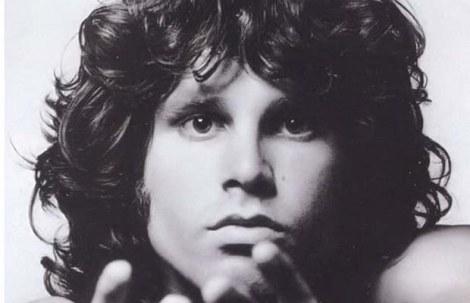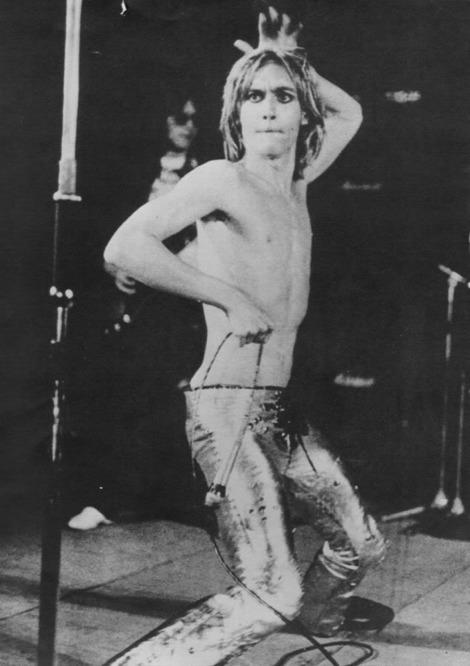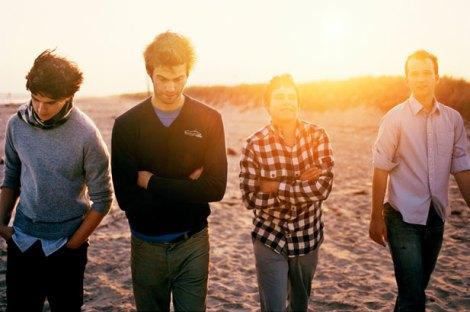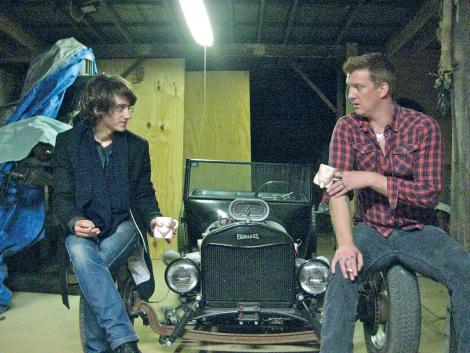Jemima Skala makes her Raccoon debut with a thought-provoking feature on how and why rock and roll iconography has changed since the 1960s.

When I say “rock legend”, who do you automatically think of? The obvious choices would be David Bowie, McCartney and Lennon, Mick Jagger and Jim Morrison. Aside from their obvious status of absolute gods, each of these people have something in common: they all come from a bygone era. They come from a time when it was possible to hold the world in the palm of your hands with just a clever guitar riff and a good drum beat. So what changed?
The disappearance of these iconic figures left fans of rock and roll feeling like lost puppies. There were few people left who could fill the ginormous shoes of the aforementioned legends. When Morrison became a member of the 27 Club, his fans were shocked to the core. Here was a man who had given rise to a mass musical following by using sex, drugs, alcohol and pure ego to fuel his appeal. His outrageous on-stage behavior paved the way for many rock and roll divas. After this tragedy, it left few role models for aspiring musicians to look up to. Without the guidance of visionaries such as Bowie and Morrison, it became hard to determine a new direction. Instead, people like Iggy Pop, who formed his identity on Jim Morrison’s onstage presence, took up the mantle. By the late 1970s and early ’80s, rock had so many different off-shoots that you were certain to find someone to admire whatever your tastes. It became more a matter of developing these new routes further rather than creating something entirely new; the new generation of musicians didn’t ignore what had come before, but built on it and steered it into a place more fitting for the times.

The music industry today has become more profit-focused than ever. Understandably, considering that these bands have to make a living somehow, it has become so that there isn’t any room left for honest musicians. Shows like The Voice, The X Factor and Pop Idol may offer a chance to aspiring musicians, but they also don’t allow any room for individuality. Every single that has been released by any of the winners of these competitions blends in with the crowd. In fact, when Bowie signed to EMI and released Let’s Dance, it marked the end of a hugely individual and highly varied career. Although his songs still had the old Bowie flair, they didn’t have any of the former individuality of his previous albums. This generic nature of the pop scene nowadays has forced musicians to find other ways to make their music interesting, whether it be by developing a certain image (like the dark gothic look of Marilyn Manson) or by adapting musical techniques to their advantage (such as Vampire Weekend’s combination of African drumming with indie rock in their self-titled first album). This individuality makes these bands stand out so, naturally, more attention is drawn to them. This gives musicians a greater scope for success, although due to the difference to the typical pop sound, it means that they don’t often make chart successes.

The great thing about music is discovering that one amazing band that nobody else knows. It feels as though they’re exclusively yours, and you don’t really want to share them. At least, that’s how I usually feel. The problem with this increased popularity of hipster culture, or knowing something before it was cool, is that it decreases the chance of widespread commercial success for the band. These underground bands will only ever remain underground because they are deemed, especially by the fans, to be too cool for the charts. For example, Neutral Milk Hotel, one of the most influential indie bands, have only ever released two albums and neither have achieved any sort of chart notoriety.
Due to the development of sites like Soundcloud and Bandcamp, music has become much more widely available. If music gets heard, the band becomes more popular, people buy the CDs and go to the shows, and so profitable success surely follows. However, due to the development of illegal websites, music can be downloaded for free. The music is more available and becomes more popular, but the band gets no profit whatsoever; this makes it harder for them to sustain their career. To paraphrase Syndrome in The Incredibles, “when everyone’s famous, no one will be.”
Please don’t come away from this thinking that I am utterly damning rock culture as dead; you only have to glance at the vibrant music scene to know that it most certainly isn’t. I’m only saying that it’s no longer possible for rock bands to become cult icons, as in the golden days of rock and roll. They don’t demand attention, they command it. Like Josh Homme or Alex Turner, they prefer to maintain a certain mystique, remaining on the outskirts of success, courting it on occasion.


